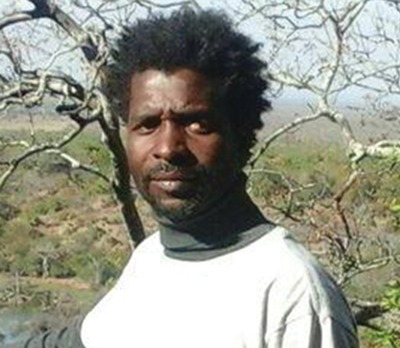
MOST Zimbabweans were left bewildered when President Emmerson Mnangagwa on Saturday, against all expectations and available medical evidence, announced that the COVID-19 lockdown was now indefinite.
Mnangagwa for the first time made the announcement at least some 24 hours before the expiry of the regulations.
The country, like on all other issues, has been muddling through and blubbering its reasons for any decision it took. Nothing convincing, but acceptable because of fear of the COVID-19 epidemic and the fact that South Africa was doing nearly the same.
Zimbabweans have since end of April been waiting for a coherent and feasible lockdown exit strategy. However, with the benefit of hindsight one can tell that after the initial extension of the lockdown and the throwing in of the “stage 2” tag from nowhere, without any context, it further muddied the situation.
Many concluded that Mnangagwa was, like in the initial lockdown announcement, copying South African President Cyril Ramaphosa. However Ramaphosa, unlike Mnangagwa, was using scientific and medical-based research and projections when he said his country was moving from stage 5 to 4. He went ahead and explained what each stage entailed and what conditions would necessitate the removal of lockdown restrictions.
A new study published by Oxford University Press for the Infectious Diseases Society of America titled The SARS-CoV-2 epidemic in Zimbabwe: Quo vadis? by Leolin Katsidzira, Lenon Gwaunza and James G Hakim, all of University of Zimbabwe College of Health Sciences, exposes how the Mnangagwa regime is engaged in a less scientific approach on the lockdown.
“What has been understated though is the lack of credible estimates on the expected trajectory of the SARS-CoV-2 epidemic in sub-Saharan Africa, and the need to have interventions tailored to the social, demographic and economic conditions,” they argue.
They further posit that the fixation with COVID-19 will further expose the citizens to higher deaths from other diseases such as typhoid, cholera and tuberculosis that are now on the backburner.
- Chamisa under fire over US$120K donation
- Mavhunga puts DeMbare into Chibuku quarterfinals
- Pension funds bet on Cabora Bassa oilfields
- Councils defy govt fire tender directive
Keep Reading
“The change in focus of the infectious diseases’ hospitals to COVID-19 may have an adverse effect on the tuberculosis programmes in particular. Already, the two infectious diseases hospitals in Harare have stopped admitting non-COVID-19 patients, in a country with a high prevalence of tuberculosis and recurrent outbreaks of typhoid.
“This highlights the need to balance the response to COVID-19 with on-going public health needs.
It is not inconceivable that we may see an increase in mortality from non-COVID-19-related conditions, and this increase may even dwarf COVID-19-related deaths, as was previously observed after the Ebola outbreak in West Africa,” they say.
The academics further explored the cost of the lockdown on vulnerable members of the community particularly in relation to the poor social safety nets in Zimbabwe.
“The degree of the adverse impact of lockdowns on the economy will differ between different countries. In Zimbabwe, there is likely to be disproportionate effect at household level, as most people now depend on the informal sector, in a country with limited formal social safety nets.
Moreover, enforcement of lockdowns is potentially unequal, and may take a punitive form in the poor neighbourhoods, that paradoxically, are less likely to have the initial imported, and imported-associated SARS-CoV-2 infections,” they said.
The Public Service, Labour and Social Welfare ministry, despite rhetoric that it had received $600 million to distribute to a million vulnerable households as cash transfers for three months, is still to disburse the money. Debate has been raging on how the government can select a million households in a country with 90% unemployment and 70% of households living on less that US$2 a day, according to the International Monetary Fund.
The poverty in the country is further exacerbated by inflation and the loss of value of the local currency against the dollar. Since Monday after the central bank announced the introduction of higher denomination notes ($10 and $20 notes) the parallel market rate jumped from $45 to $60 against the greenback. The rich have taken refuge on the stock exchange by acquiring shares in blue-chip companies.
The loss of value against hard currencies is a bad omen to the poor in a country that relies on imports for all basic commodities including cooking oil, maize-meal, soap and sugar. It means prices will spike while wages and salaries remain stagnant for the lucky few who will still have jobs as many companies restructure or shutdown operations due to COVID-19 pandemic.
What is not beyond doubt now is Zimbabwe is now flying blind. The Collins Dictionary defines flying blind as “to be in a situation where you have nothing to help you or guide you”.
Mnangagwa is, therefore, redefining the art of muddling through during a period when he cannot afford making experiments. It is a moment when most believed he would defer to epidemiologists and economists on how to get out of the COVID-19 rut, but this seems a thought far from reality to a man who does not know how deep at sea he is.
The epidemic can be used as an opportunity to relook at the country’s public health and social welfare policies going forward. Public health and social welfare should be at the centre of any policy interventions if the country has to come out united and safer from public health disasters.
Paidamoyo Muzulu is a journalist and writes here in his personal capacity.











